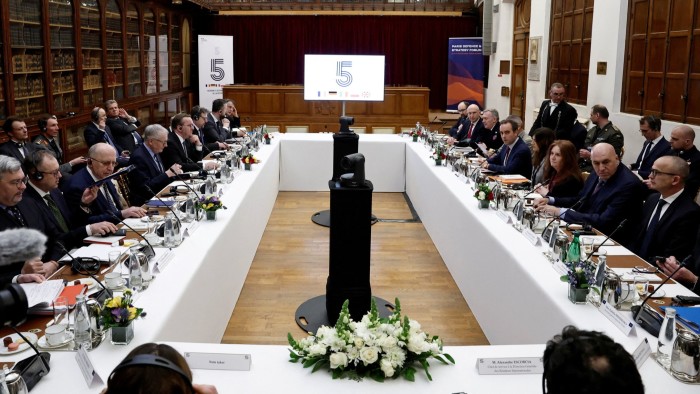US Trade Policies and Europe’s Defense: Key Developments
In a significant shift away from escalating tensions, President Donald Trump announced a temporary halt on tariffs intended for global partners, including the European Union, granting a 90-day period for negotiations. This decision followed intense fluctuations in US bond markets influenced by earlier tariff announcements. However, Trump simultaneously escalated tariffs on China to 125%, indicating ongoing instability in international trade relations.
NATO Meeting Without US Presence
In a notable absence, Western defense ministers are convening today at NATO headquarters in Brussels to explore potential military measures aimed at countering a Russian invasion, all without the participation of the United States. This gathering of the “coalition of the willing,” which includes officials from thirty nations, underscores the growing concerns among European officials regarding a future without robust US support in NATO.
Context of the Meeting
Delegates are expected to discuss establishment of a reassurance force in Ukraine, which would play a crucial role in enforcing a post-conflict peace agreement. Notably, Trump’s administration has opted out of this coalition, heightening the urgency among European leaders to establish a reliable defense strategy that could accommodate some form of indirect US involvement.
Despite reassurances from diplomats about the significance of the US absence, the sentiment of unease is palpable among European capitals previously reliant on US military backing. During the meeting, ministers will outline contributions each nation can make, including logistics, intelligence, and various military forces, aiming to formulate a foundational plan by the end of the month. British Defense Secretary John Healey is anticipated to emphasize the historic responsibility European nations bear in ensuring peace in Ukraine and the broader security of the continent.
Stalled Peace Efforts
The context for these discussions is worsening, as US-led efforts to secure peace negotiations between Russia and Ukraine are showing signs of stagnation. Persistent demands from the Kremlin, coupled with an evident lack of willingness to engage with proposed terms, are creating further complications amidst ongoing hostilities.
EU’s Energy Strategy: Seeking Greater Gas Imports
In another development, EU Commissioner Dan Jørgensen has urged for an increase in gas imports from the US as part of efforts to alleviate the pressure from tariffs and simultaneously boost renewable energy initiatives. This dual approach aims to balance energy security with partners who are increasingly wary of reliance on external sources.
Scrutiny of EU Officials’ Job Transitions
Furthermore, the newly appointed European Ombudsman, Teresa Anjinho, has announced plans to investigate the practice of “revolving doors” among EU officials, a concern heightened by recent corruption scandals. This inquiry aims to enhance transparency and restore public trust in EU institutions.
Background on the Investigation
Having taken office in February, Anjinho expressed intentions to scrutinize the seamless transitions between public service and private sector roles that may foster conflicts of interest. Previous investigations have highlighted incidents, such as the move of a former director of the European Banking Authority to a private lobbying firm, illustrating the need for stricter regulations.
Calls for Reform
Anjinho highlighted that ongoing scandals, including the “Qatargate” and various bribery allegations, undermine citizens’ trust and necessitate clear regulations across all EU institutions. She emphasized the importance of establishing an independent ethics body, which has faced delays, stating that “the minimum that we can demand as citizens in general, is that decision makers comply with what they do decide.”
What to Watch
- The NATO summit continues in Brussels as ministers plan for a Ukrainian reassurance force.
- Spanish Prime Minister Pedro Sánchez is scheduled to visit China for discussions.
Additional Insights
In related news, Austria’s new government faces criticism for policies blocking refugee family reunifications despite human rights concerns. Additionally, a significant surge in nationalisations in Russia is documented amidst its ongoing conflict with Ukraine.
Concerns regarding the sustainability of Europe’s wind power industry have been raised, as leaders caution that the sector risks entering a “downward spiral” without strategic intervention.


